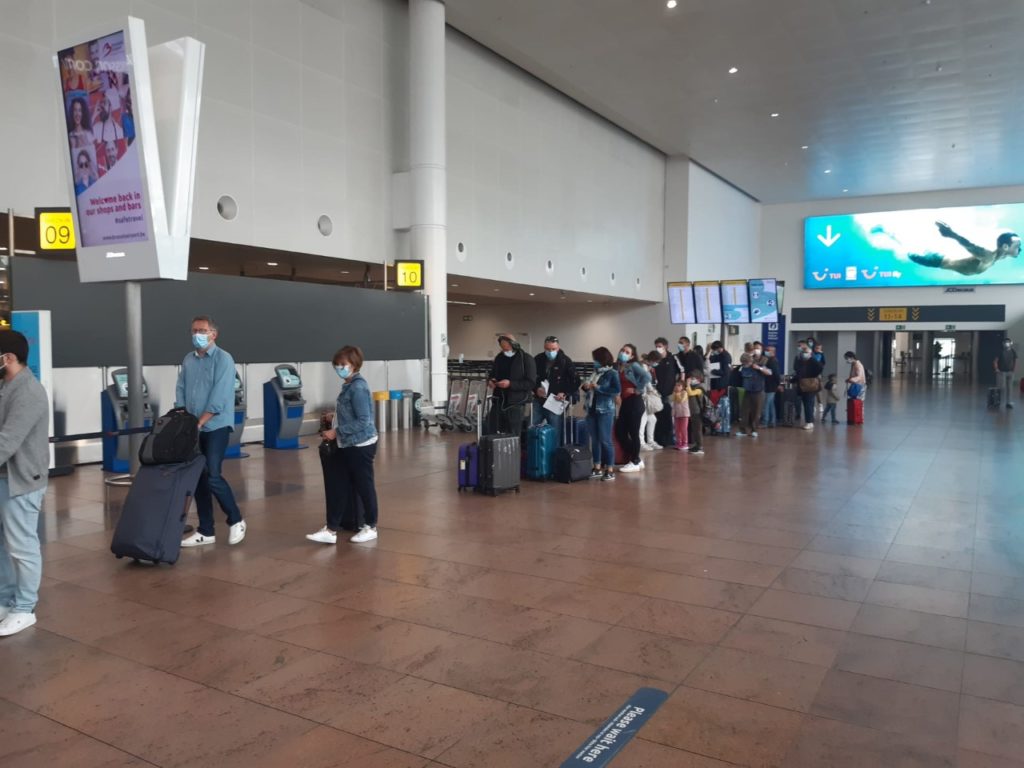The European institutions reached last week a political agreement on the operation of the European Travel Information and Authorisation System (ETIAS) which is due to enter into force by the end of 2022.
The work on the system (“ETIAS”) started in the wake of the terrorist attacks in Paris and Brussels five years ago when border authorities at the external borders of the EU lacked any information on travellers exempted from the visa requirement.
A feasibility study was completed in November 2016 but it would take the unprecedented coronavirus pandemic for the European Parliament, Council and Commission to agree on the modalities of the system. The system will determine the eligibility of visa-exempt third-country nationals prior to their travel to the Schengen Area, and whether such travel poses a security, illegal immigration or high epidemic risk.
“Our police officers and border guards need to have the right tools to do their jobs – keeping our citizens safe and our borders secure,” said Margaritis Schinas, Vice-President for Promoting our European Way of Life (18 March). “Anyone who poses a migratory or security risk will be identified before they even travel to EU borders, while bona fide travellers' journeys will be made that much easier.”
Once the sysetem is in place, non-EU citizens travelling to the Schengen area who are exempt from the visa requirement will need to register and obtain an authorisation before travelling. The system will cross-check travellers against EU information systems for borders, security and migration before their trip, helping to identify ahead of time people who may pose a risk.
According to the proposed regulation, a travel authorisation is by its nature distinct from a visa; it will not require more information or place a heavier burden on applicants than a visa does. Holding a valid travel authorisation should be a new entry condition for the territory of the member states. Mere possession of a travel authorisation should not, however, confer an automatic right of entry.
How the system will work
The new system consists of a large-scale information system, the ETIAS Information System, the ETIAS Central Unit and the ETIAS National Units. Each member state should establish an ETIAS National Unit responsible for examining applications and deciding whether to issue or refuse, annul or revoke travel authorisations.
To meet its objectives, ETIAS will provide an online application form. The verification of the application should preclude the use of travel documents which will expire in less than three months, have expired or were issued more than 10 years previously.
The verification should be undertaken before the applicant is invited to pay the fee, €7, which will be a one-off fee, and will be valid for 3 years and for multiple entries. The Commission promises that it will take only a few minutes to fill in the online application which in a vast majority of cases (expected to be over 95%) will result in automatic approval.
The applicant shall among others provide answers as to whether he or she has been convicted of criminal offences listed in the annex to the regulation over the previous 10 years (in the case of terrorist offences, over the previous 20 years) and whether he or she has stayed in a specific war or conflict zone over the previous 10 years and the reasons for the stay.
Most of the travel authorisations should be issued within minutes, according to the regulation, though a reduced number could take longer, especially in exceptional cases. In such cases, it may be necessary to request additional information from the applicant or to invite him or her to an interview.
Interviews should only be conducted as a last resort and when serious doubts remain regarding the information or documentation provided by the applicant. The exceptional nature of interviews should lead to less than 0,1 % of applicants being invited to an interview. The number of applicants invited to an interview should be subject to regular review by the Commission.
It is expected that the vast majority of applications will obtain a positive answer by automated means. No refusal, annulment or revocation of a travel authorisation should be based only on the automated processing of personal data in the applications.
Applicants who have been refused a travel authorisation should have the right to appeal. Appeals should be conducted in the member state that has taken the decision on the application and in accordance with the national law of that state.
M. Apelblat
The Brussels Times

